Ann Marie Leonard Zabel, Curry College, United States
This presentation will address the multidisciplinary neuropsychological assessment and intervention services for youth with Long Covid (PASC) coupled with sustaining recovery involving substance use disorder. However, since the impetus of COVID-19 as of March 2020, many children [....] » Read More



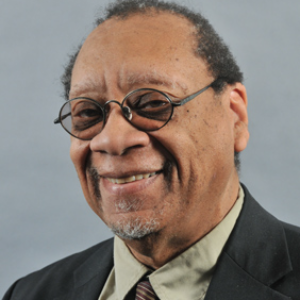

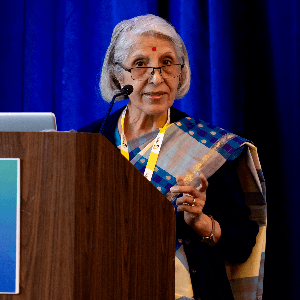



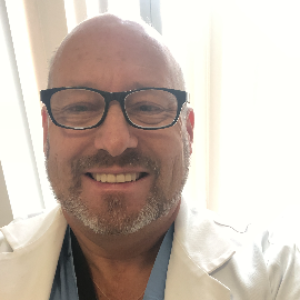








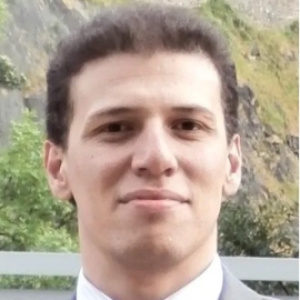
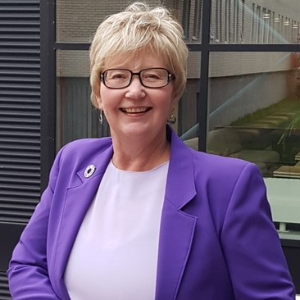



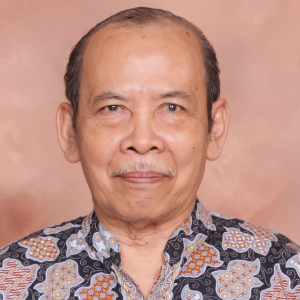

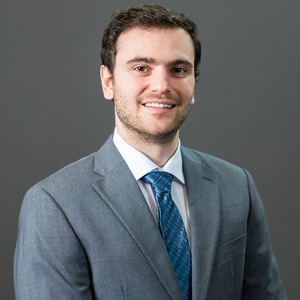




Title : Office based addiction treatment program update and population health
Mohammad Zare, UTHealth and Harris Health System, United States
Harris Health is the largest safety net care system in Texas and the fourth largest safety net in the nation. The patient population is comprised of a high rate of uninsured/underinsured patients and justice-involved individuals, of which many have chronic diseases, including sub [....] » Read More
Title : Affordances vs task management: Evoking agency and addiction
Denis Larrivee, University of Navarra, Spain
Neural mechanisms for self regulation feature prominently in studies of addiction, which is characterized by the inability to resist compulsive behavior. Such neural mechanisms involve not just top down processes needed in the execution of decision making events, but also the neu [....] » Read More
Title : The future is now for precision genomic addiction medicine as a frontline modality for inducing "Dopamine Homeostasis" in Reward Deficiency Syndrome (RDS)
Elizabeth Dale Gilley, The Elle Foundation, United States
Introduction: In this genomic era of addiction medicine, ideal treatment planning begins with genetic screening to determine neurogenetic antecedents of the Reward Deficiency Syndrome (RDS) phenotype. Patients suffering from endotype addictions, both substance and behavioral, and [....] » Read More
Title : Office based addiction treatment program update and population health
Jennifer LaHue, Harris Health System, United States
Harris Health is the largest safety net care system in Texas and the fourth largest safety net in the nation. The patient population is comprised of a high rate of uninsured/underinsured patients and justice-involved individuals, of which many have chronic diseases, including sub [....] » Read More
Title : Office based addiction treatment program update and population health
Kathryn Crary, Harris Health System, United States
Harris Health is the largest safety net care system in Texas and the fourth largest safety net in the nation. The patient population is comprised of a high rate of uninsured/underinsured patients and justice-involved individuals, of which many have chronic diseases, including sub [....] » Read More
Title : Visual Cues Trigger Emotions Picture Recovery in Actual Pictures to Stay Sober
Mia W McNary, Artist and Visual Storyteller, “Picture Recovery”, United States
Picture Recovery is a visual roadmap through the journey of alcohol recovery. It's much easier to remember a picture than words, and with 65 percent of the population identifying as a visual learner, this is the only book of its kind in the alcoholism recovery category. This [....] » Read More
Title : The body holds the key: Healing addictions at the source with life centered therapy
Andrew H Hahn, Life Centered Therapy Training Institute, United States
To heal addictions, we must be able to do 7 things. 1. Heal the trauma. 2. Heal the way we protect ourselves from ever experiencing the trauma again. 3. Contexts. 4. Triggers. 5. The habit itself. 6. Elators. 7. Anticipatory fears we will focus on the first two of these. we will [....] » Read More
Title : The impact of culture on addiction - can explanatory models go far enough to treat addiction
Ange Weinrabe, The University of Sydney, Australia
Addiction. Labeled a disease by the dominant Medical Explanatory Model, it remains a phenomenon that is widely debated by authors who contest this concept using reductive models that claim it to be a physical-level disorder. Treating the manifestation of behaviour and not address [....] » Read More
Title : Effectiveness of Mindfulness Integrated Cognitive Behaviour Therapy (MiCBT) on life satisfaction, self-esteem and craving among patients with substance abuse: A randomized control trial
Santhosh Kumar J, Amrita Vishwa Vidyapeetham, India
Background: Substance abuse is a significant public health concern in India, like in many other parts of the world. It involves the harmful or hazardous use of psychoactive substances, including alcohol and illicit drugs. India has a limited number of treatment and rehabilit [....] » Read More
Title : Bridging the gap: Addiction and behavioral health integration
Sindu Padmanabhan, Bharathiar University, India
Addiction and behavioral health are two intertwined domains with profound implications for public health and individual well-being. This abstract provides an overview of the critical importance of integrating addiction and behavioral health services to address the complex and mul [....] » Read More
Title : The mutual enhancing effect of music and drugs in the lives of people coping with substance use disorder and its rehabilitative implications
Moshe Bensimon, Bar Ilan University, Israel
Substance craving may be triggered in people recovering from substance use disorder when listening to the same music genres they had listened to during active addiction. Given the limited research on the topic, the current study examined how the combination of music and drugs fac [....] » Read More
Title : The mutual enhancing effect of music and drugs in the lives of people coping with substance use disorder and its rehabilitative implications
Jeffrey Lozon, Bar-Ilan University, Israel
Substance craving may be triggered in people recovering from substance use disorder when listening to the same music genres they had listened to during active addiction. Given the limited research on the topic, the current study examined how the combination of music and drugs fac [....] » Read More
Title : Why does memory consolidation require sleep?
Sushil Jha, Jawaharlal Nehru University, India
Non-rapid Eye Movement (NREM) sleep and Rapid Eye Movement (REM) sleep, in both stages, together or individually, helps in memory consolidation. For example, short sleep deprivation (5-6 hours) soon after fear-conditioned training (cued and contextual fear conditioning) and [....] » Read More
Title : Exploring reading and reading disorders in children: Insights from developmental neuroscience
Paul Raj, Jyoti Nivas College, India
Reading is a fundamental skill crucial for success in various aspects of life, including social interactions, academic achievement, emotional regulation, and professional pursuits. However, reading impairments, a prevalent neurodevelopmental issue impacting approximately 5-10% of [....] » Read More
Title : Vision for controlling narcotic dependency and relapse
Ramesh Nagarajappa, The Oxford Dental College, India
The prevalence of opioid use in India is three times the global average. The impact of substance abuse often reaches beyond the abuser to family members, friends, co-workers, and society at large. While biological factors are mainly responsible for progression to dependent use fr [....] » Read More
Title : Generational trauma and the pathology of the addicted survivor in the criminal justice system
Traci A Owens, Attorney at Law, United States
Proper representation requires a thorough examination of a client's social history. What appears to be pathological behavior is often, upon closer examination, adaptive behavior. Criminal defendants who manage addictive and neurodiverse features are often a reflection of [....] » Read More
Title : The neurobiology of addiction: The mind and body connection
Michele M Mahr, California State University, United States
The purpose of this presentation is to educate participants on the fundamental components of neurobiology of addiction. The presenters will examine neurobiology concepts related to addiction and treatment. Research has been conducted over the past decade revealing the [....] » Read More
Title : The neurobiology of addiction: The mind and body connection
Robert Paul Maddox II, University of Wyoming, United States
The purpose of this presentation is to educate participants on the fundamental components of neurobiology of addiction. The presenters will examine neurobiology concepts related to addiction and treatment. Research has been conducted over the past decade revealing the [....] » Read More
Title : The neurobiology of addiction: The mind and body connection
Juan Sanabria, California State University, United States
The purpose of this presentation is to educate participants on the fundamental components of neurobiology of addiction. The presenters will examine neurobiology concepts related to addiction and treatment. Research has been conducted over the past decade revealing the [....] » Read More
Title : No sex difference in clinical characteristics or treatment outcomes of alcohol withdrawal syndrome (AWS) in 148 hospitalized adolescents
Hayrunnisa Unlu, Mayo Clinic Arizona, United States
Background: Recent studies suggest that alcohol consumption is increasing in adolescent females but little is known about AWS in this population. Adolescent females may have unique, unknown vulnerabilities as prior studies of AWS focus on males. Objective: To characterize the [....] » Read More
Title : Ed addiction recovery consults for substance abuse lowers death and incarceration rates
Kelsey Whitus, Drexel university college of medicine, United States
For the past 5 years, the United States has been experiencing an opioid epidemic. Patients with Substance Use Disorder (SUD), especially with opioids, are at an increased risk of death compared to patients without SUD. It is estimated that 11.1% of adult ED patients have a SUD. I [....] » Read More
Title : In a world of deltas: Review of clinical implications of delta 8,9 and 10 THC
Thersilla Oberbarnscheidt, University of Pittsburgh, United States
Along with the legalization of marijuana throughout the U.S., there is an increase in use of delta products as well. While these delta-THCs are widely available and advertised, little information about the effects and possible risks are broadcast to the public. Marijuana is feder [....] » Read More
Title : Substance use and relationship functioning: The case for couples therapy
Keith Klostermann, State University of New York at Fredonia, United States
The results of numerous studies over the past four decades have consistently revealed the effectiveness of couple and family-based approaches for drug and alcohol abuse. Behavioral couples therapy (BCT) is a conjoint approach which has been consistently shown to produce fewer sub [....] » Read More
Title : Using AI to identify feature importance for no-show appointments in substance abuse treatment settings
Matthew Hanauer, CleanSlate Centers, United States
In substance abuse settings no-show rates are correlated with higher mortality rates. The reasons behind no rates are multifactored and complex, limiting insights gained from traditional statistical models. Machine learning models can handle more features but are diff [....] » Read More
Title : Revisiting the gateway hypothesis by considering the effect of age-of-first use on subsequent illicit drug use
Matthew Beattie, University of Oklahoma, United States
The Gateway Hypothesis, originally formulated in 1975 by Denise Kandel, claims that drug use evolves in stages. It starts with either tobacco or alcohol use, progresses to the use of the other, then to marijuana, and then to other more dangerous illicit substances. Use of a [....] » Read More
Title : No addict left behind
Joey Pagano, Author, SPHS, The Traveling Social Worker, United States
The session will examine the stigma of addiction from unique real-life perspectives while also focusing on harm reduction treatment related to persons who suffer from substance use disorder and mental health. Social work core values, such as self-determination, will be centralize [....] » Read More
Title : Kratom: the good, the bad, and the unknowns
Cornel Stanciu, New Hampshire Hospital, United States
This workshop will serve to provide an up-to-date all-around coverage of Kratom, a botanical with a rapidly increasing prevalence among our patient population. A tremendous gap of knowledge exists at the intersection of “therapeutic” use and the risks associated with [....] » Read More
Title : Craniofacial encephalocele: Updates on management
Brandon Lucke Wold, University Of Florida, United States
Craniofacial encephaloceles are rare, yet highly debilitating neuroanatomical abnormalities that result from herniation of neural tissue through a bony defect and can lead to death, cognitive delay, seizures, and issues integrating socially. Consensus on the proper approach to tr [....] » Read More
Title : COVID-19: Risk of alcohol abuse and psychiatric disorders
Sara Haddadi, University of Miami Miller, United States
Alcohol abuse along with difficulties in communication has led to increased morbidity and mortality among patients with psychiatric disorders. This issue has a higher importance during the COVID-19 Pandemic. Standard recommendations to prevent the spread of infection such as self [....] » Read More
Title : 21st century discoveries in the physiology of adaptation and dramatic changes in the validation of substance dependence
Baitubaev Dyussengali, Psychiatrist-Narcologist, Kazakhstan
The report shows that the current level of physiology does not reveal the biological mechanisms for increasing tolerance in dependence on psychoactive substances. Like, for example, opium (heroin) the addict uses doses repeatedly, almost 10 times, exceeding the lethal f [....] » Read More
Title : The impact of covid-19 on substance use treatment utilization among people who use substances in the United States: National Survey of Drug Use and Health 2019-2021
Elena DeSanti, Brown University School of Public Health, United States
In 2015, 99% of those classified as having a substance use disorder had not received substance use treatment. The onset of the COVID-19 pandemic exacerbated existing barriers to accessing substance use treatment and created others. The purpose of this research was to examine the [....] » Read More
Title : Increased prevalence of trauma-informed care in substance use treatment centers: Regional and payer-based differences in access
Tom Alexander, Purdue University Global, United States
Therapy treatment in substance use disorder (SUD) facilities across the United States has evolved over the past decade—most notably with the advent of trauma-informed care for addiction. However, the exact prevalence and changes of trauma-informed care across SUD facilities [....] » Read More
Title : False-Positive Phencyclidine (PCP) result on 11-Panel Urine Drug Screen (UDS) in a 17-year-old Adolescent with long-term venlafaxine use
Hyun Sue Kim, Virginia Tech Carilion School of Medicine, United States
Venlafaxine is an antidepressant belonging to the class of serotonin-norepinephrine reuptake inhibitors (SNRIs) that is US Food and Drug Administration (FDA) approved to treat and manage symptoms of depression, anxiety, and other mood disorders in adults. Phencyclidine (PCP) is a [....] » Read More
Title : From relief to aggravation: The intriguing tinnitus-opioid withdrawal paradox
Nikita Mehdiratta, Smell and Taste Treatment & Research Foundation Ltd, United States
Introduction: Opioids have been documented to induce tinnitus. However, tinnitus exacerbation with opioid withdrawal and relief upon re-administration of opioids has not been described. Methods: Case report: A 37-year-old male presented with a persistent ringin [....] » Read More
Title : Generalized restless body syndrome: A case of opioid withdrawal-induced restlessness extending beyond the legs
Nikita Mehdiratta, Smell and Taste Treatment & Research Foundation Ltd, United States
Introduction: Restless leg syndrome (RLS) has been described in those undergoing opioid withdrawal as a factor exacerbating heroin dependence. RLS, however, has not been described as involving more than the legs. Therefore, a case of generalized Restless Body Syndr [....] » Read More
Title : A higher selectivity for sigma1 relative to sigma2 receptors is associated with lower efficacy in achieving a dose-dependent attenuation of cocaine consumption
Reshma Paul, Cooper Medical School of Rowan University, United States
Background: There is an epidemic of Psychostimulant Use Disorders (PUD) in the United States. In addition to the dopamine transporter (DAT), cocaine also exerts its effects via the sigma receptors, and sigma receptors may represent a promising pharmacotherapeutic target. However, [....] » Read More